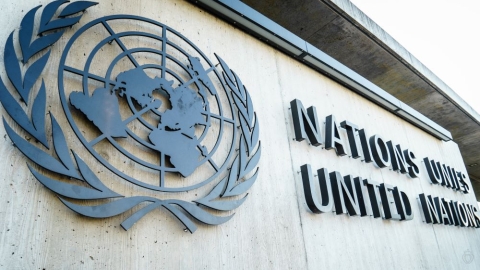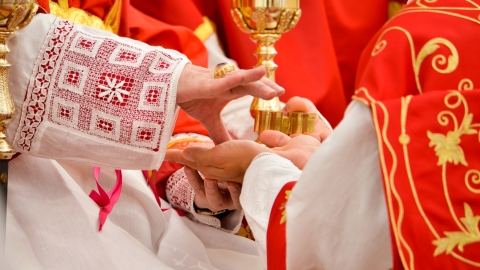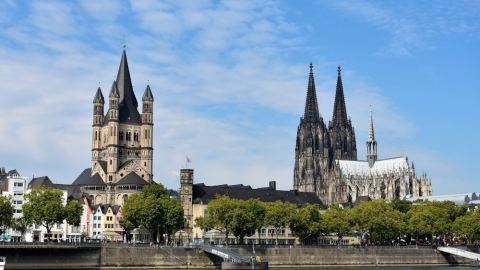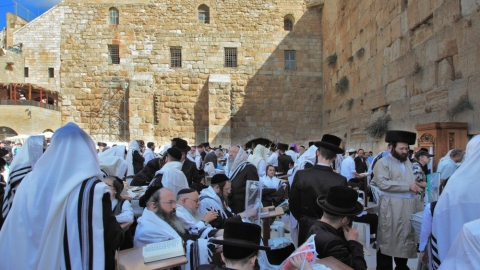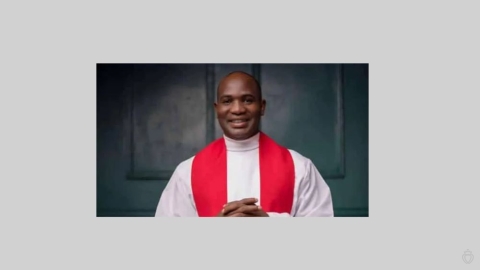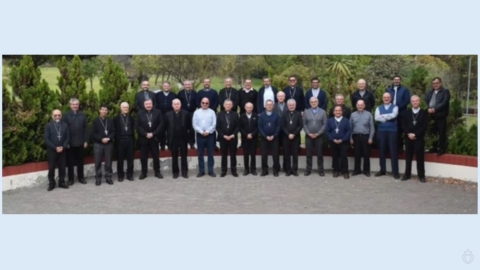Switzerland—Vatican II: Celebrating What, and Why?

On October 4, 2012, a conference was held at the University of Fribourg in honour of the retirement of Francis Python, professor of modern history. “As homage to his commitment and to his influence on both academia and society” (to quote his colleagues), the conference focused on the fields to which Python contributed throughout his career: the social history of religion, and the history of the canton and the city of Fribourg. On this occasion Yvon Tranvouez, professor of modern history at the University of Brest in Brittany, gave a lecture entitled Time and Space in Contemporary Catholicism (19th and 20thc.), during which he presented a remarkably interesting analysis of the evolution of French Catholicism over the last century.
Prof. Tranvouez pointed out that celebrating the 50th anniversary of Vatican II is like celebrating the 200th anniversary of 1789; nobody really knows exactly what they are celebrating or why. Public debate in the Church now focuses on the heritage of Vatican II, dated as that council is by major world changes since; the past is still present. Both commemorations provoke the same question: what are we celebrating, and why? On the one hand, some think that everything in the Council is good; on the other, some believe everything in the Council is bad. In Tranvouez’s opinion, Benedict XVI's hope to unite both sides is illusory. The Pope refers to Vatican II as “a compass for the life of the Church", while his former friend Hans Küng uses the same metaphor, speaking of the failure "to make the spirit of the Second Vatican Council the compass for the whole Catholic Church”. The ‘compass’ has clearly become something of a ball and chain. Tranvouez wonders what Vatican II means to young Catholics today.
Tranvouez prefers a model of cyclic development in phases to one of radical rupture. He notes a different atmosphere but denies any fundamental change in Catholicism. Did the "conciliar revolution" begin with Pius XII's first reforms in the 50's? Did it end in May 1968, or even in 1978 when John Paul II became Pope? In Yvon Tranvouez’s opinion the Council will continue to haunt us until progressives and conservatives are reconciled.
Using the generation of John Paul II as an example, Tranvouez emphasized the tendency of youth to rally to inspiring ideals, usually under the leadership of a strong personality. Today, he says, the John Paul II generation is responsible for many initiatives on an unpredictable horizon. Like those who want a definitive break with the past, young Catholics sometimes suffer from amnesia and feel no need for continuity. Their reference is early Christianity, adorned with every virtue.
Until halfway through the 20th century, a Catholic's points of reference were his parish priest, his bishop, and the Pope, notes Yvon Tranvouez. For the 21st century Catholic, the points of reference are the same, but in the opposite order: the Pope, one’s bishop, and one’s parish priest. The parish was for a long time the natural arena of Christian existence, from baptism in the village church to one’s funeral, often in the same church. The hallmark of this era was a predominant clerical presence. Social mobility and the slump in vocations put an end to the parochial world. Today, a parish is an eclectic group rather than a geographical district. The faithful choose their parishes based on their own criteria. Of late, the diocese has become the arena of Catholic existence as a sort of "super-parish", says Tranvouez.
Yvon Tranvouez believes that even while Catholics drift from Rome’s teachings, they retain a fundamental attachment to the Church itself. However, the missionary Church has almost disappeared from today’s world. In the 1930s, the faithful dreamed of spreading Christianity to the remote corners of the earth; Catholics in the 2000s believe in respect of cultures, the refusal of proselytizing, and interreligious dialogue.
(Sources: University of Fribourg – DICI no. 264 09/11/12)
You can also read :
Commemorations
